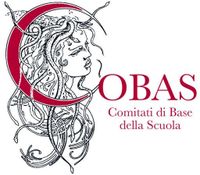In a recent Senate hearing on April 3, 2025, Ornella Dorigatti, a candidate for the "Generazione Geat" party in the upcoming Trento city elections, made headlines by claiming that the Trentino region has one of the highest illiteracy rates in Italy. However, her assertions have sparked controversy, as they lack supporting data and contradict recent educational assessments.
Dorigatti's statement about illiteracy, which she mistakenly referred to as "alfabetismo," has drawn criticism from various quarters. Notably, her written report did not cite any sources or data to back her claims. According to the latest INVALSI tests, which evaluate student performance across Italy, Trentino ranks among the top regions for educational quality, particularly in secondary schools.
The INVALSI 2024 report, based on standardized tests conducted in March, April, and May, highlights that Trentino students excel in Italian, Mathematics, and English, consistently achieving scores above the national average. In fact, the results indicate a strong performance among Trentino students at both lower and upper secondary levels.
In total, over 2.4 million students participated in the INVALSI assessments, which included evaluations of reading and listening skills in English, as well as competencies in Italian and Mathematics for various school grades. Notably, primary school students underwent paper-based assessments, while secondary students utilized a computer-based testing format.
The INVALSI tests serve as a prerequisite for students' admission to state exams at the end of both lower and upper secondary education. This year, participation in the fifth-year tests, which took place in March, is a requirement for the 2025 high school graduation exam scheduled for June 18, affecting approximately 514,000 students.
Furthermore, Dorigatti's claim that Trentino has the highest alcohol consumption rate has also been challenged. According to a report from the Istituto Superiore della Sanità, Trentino actually ranks third in the region for alcohol consumption, following Valle d'Aosta and the autonomous province of Bolzano. The data indicates that while the northern regions of Italy, including Trentino, experience higher rates of at-risk alcohol consumption, it is the southern region of Molise that has the highest percentage of at-risk consumers.
In addition to the criticisms surrounding Dorigatti's claims, concerns have been raised about the INVALSI tests themselves. Since 2022, these assessments have introduced a new indicator of "fragility" to identify students showing signs of distress based on their test results and family background. This initiative has drawn scrutiny from educational organizations such as Flc-Cgil, which, alongside other groups, filed a complaint to the Privacy Guarantor regarding the operational methods of the INVALSI tests.
The complaint highlights a lack of transparency from the Istituto Nazionale per la Valutazione del Sistema Educativo di Istruzione e di Formazione concerning the correction processes and the purpose of data retention. Critics argue that the introduction of fragility as a measure could unfairly label students based on transient circumstances, impacting their educational trajectories.
Barbara Piccininni, a concerned parent, expressed frustration over her inability to obtain satisfactory answers from INVALSI regarding the purposes and handling of her son's personal data. She noted that while the tests are conducted in school, the results are now incorporated into students' academic records, raising questions about their long-term implications.
Moreover, the INVALSI tests have been criticized for their methodology. For instance, a reading comprehension question from a fifth-grade test was scrutinized for its ambiguous wording, which could lead to multiple interpretations of the text. Critics argue that such questions do not accurately assess students' understanding and instead penalize them for differing interpretations.
In mathematics assessments, similar issues arise, particularly with the language used in problem statements. A 2013 problem posed to second-grade students demonstrated that comprehension difficulties, rather than mathematical skills, often hindered students' performance. Only 17% of students selected the correct answer, revealing that the challenge lay more in understanding the question than in solving the mathematical problem itself.
Despite these criticisms, confidence in the INVALSI assessments appears to be growing among educators. In an editorial published on March 25, 2025, Roberto Ricci, president of INVALSI, noted the increasing engagement of schools with the assessment data. He highlighted the significant number of teachers participating in training courses aimed at utilizing data effectively to inform educational strategies.
Ricci emphasized that while data cannot replace informed decision-making, it can assist in formulating hypotheses for action. He expressed a desire for a collaborative relationship between schools and INVALSI to enhance student outcomes.
As the debate continues, the implications of Dorigatti's claims and the effectiveness of the INVALSI tests remain focal points in discussions about education in Trentino. With elections approaching, the accuracy of educational assessments and the integrity of political discourse will be under close scrutiny.





